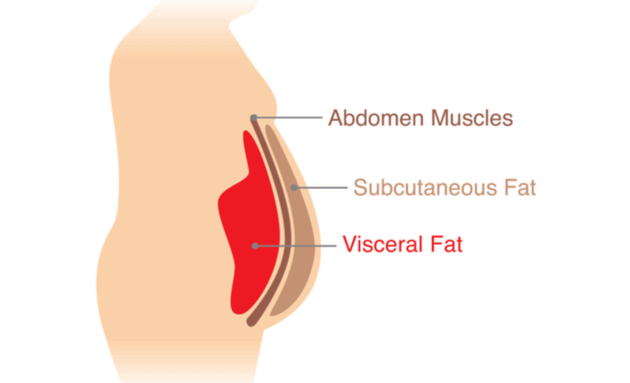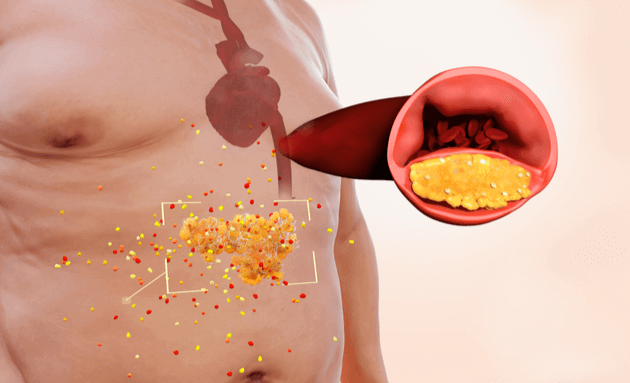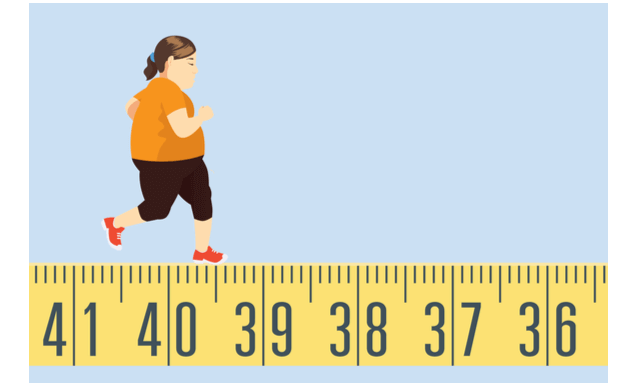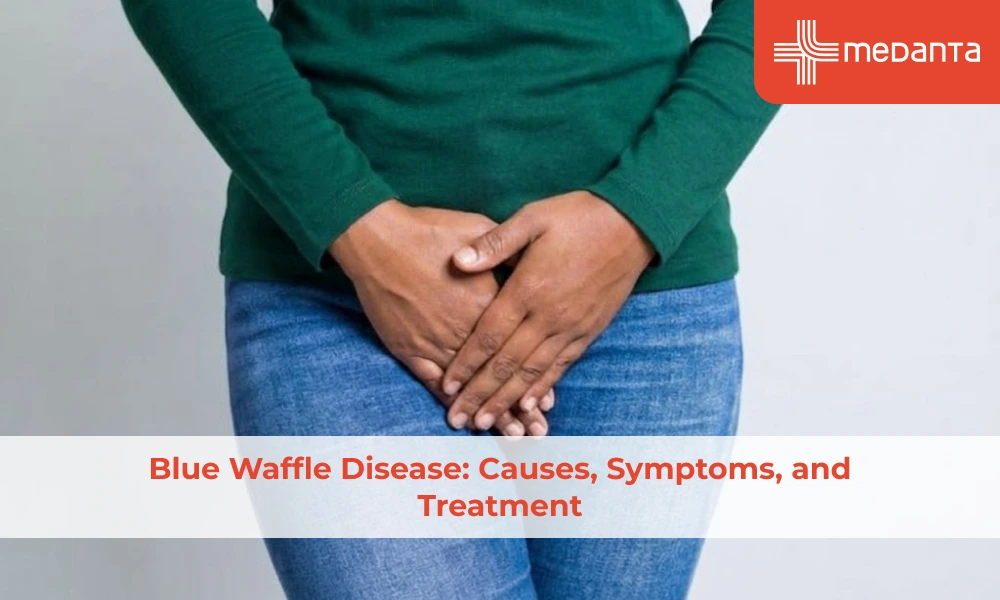The Silent Threat Of Belly Fat And What You Must Do
If you see two people of similar age, gender and one is skinny and one is plump - who would you think has greater chances of heart disease, cancer, dementia? Get ready to be surprised because recent medical researches tells us you can't say. If the thinner person does not exercise keeps a poor diet, there is a possibility they carry 'Visceral Fat' in their bodies and are at a much greater risk of dangerous ailments than the plump friend.
First, Let Us Understand Fat

Fat cells (also called adipocytes or lipocytes) are the cells that store excess calories in the form of fat, to supply energy to body when we don't have access to food. This was important for the prehistoric man but in today's urban lives, the fat continues to accumulate due to our slowing metabolism, genetic makeup, restricted activity, and lifestyle.
Fat is stored in two locations - Subcutaneous, which lies just under the skin and is visible and the other, more dangerous one which is the Visceral Fat. This fat is located is located inside the abdominal cavity and cannot be seen with the naked eye.
Subcutaneous fat within limits, may not seem aesthetically pleasing but is relatively harmless. Visceral fat on the other hand is dangerous and anyone, even a skinny person, could have it. It surrounds and presses against your internal organs in the abdominal area (liver, intestines) and interfere with important bodily functions such as breathing and eating. It can also create inflammatory toxins that affect the way your body works, increasing your risk of heart disease and diabetes.
What Does Visceral Fat Do To You

Excess fat or being overweight in general is bad for health. It can affect your sleep, clog arteries, and can be hard on your knees or back. However, visceral fat can be affect your body in deeper ways, that can lead to serious ailments like:
Heart Diseases: Visceral fat secretes hormones and biochemicals (for example, cytokines such as tumour necrosis factor and interleukin-6) that are linked with coronary heart disease. These chemicals can create insulin resistance and cause type 2 diabetes and metabolic syndrome, both of which are risk factors for cardiovascular disease.
Cancer: Abdominal fat increases one’s risk of colorectal cancer and particularly so for postmenopausal women. It can further increase women’s risk of breast cancer as well.
Alzheimer's and Dementia: Studies have shown that visceral fat in the abdomen is linked to a higher risk of dementia even in individuals who are within the normal weight range or who have no other risk factors.
How To Check If You Have Visceral Fat

Belly fat can strike anyone with a family history of getting it, people poor diet and lack of exercise (which is many people in urban areas now). In fact there is a colloquial word for the thin people who get it - TOFI (Thin On Outside, Fat On Inside). The thinner people can be at greater risk because they believe they are 'fit' and there is no other visible way to know if they have Visceral Fat.
The most accurate way of assessing belly fat is to through an MRI. Understandably, that might not be the most affordable option for most people unless urgently required. The alternative is to test for the following at home, using a tape measure:
- Get a tape measure, exhale and wrap the measure around your stomach. The bottom of the tape's strip should be even with the top of your hip bone. If your circumference is more than 40 inches (for men) or 35 inches (for women, you most probably have visceral fat inside your system
- You can also calculate your Waist-to-Hip ratio (WHR). In addition to the waist, also measure your hip circumference. Divide the waist measurement by that of the hip and if you have more than 0.9 (for men) or 0.85 (for women), then you are at high risk.
What Can You Do?

The only good news is that belly fat is easy to lose. Commit yourself to wholesome, natural food, at least 30 minutes of daily exercise and maintain and active lifestyle. Walk around and get up as much as possible. Things you need to strike out of your lifestyle are stress, smoking and alcohol consumption.






